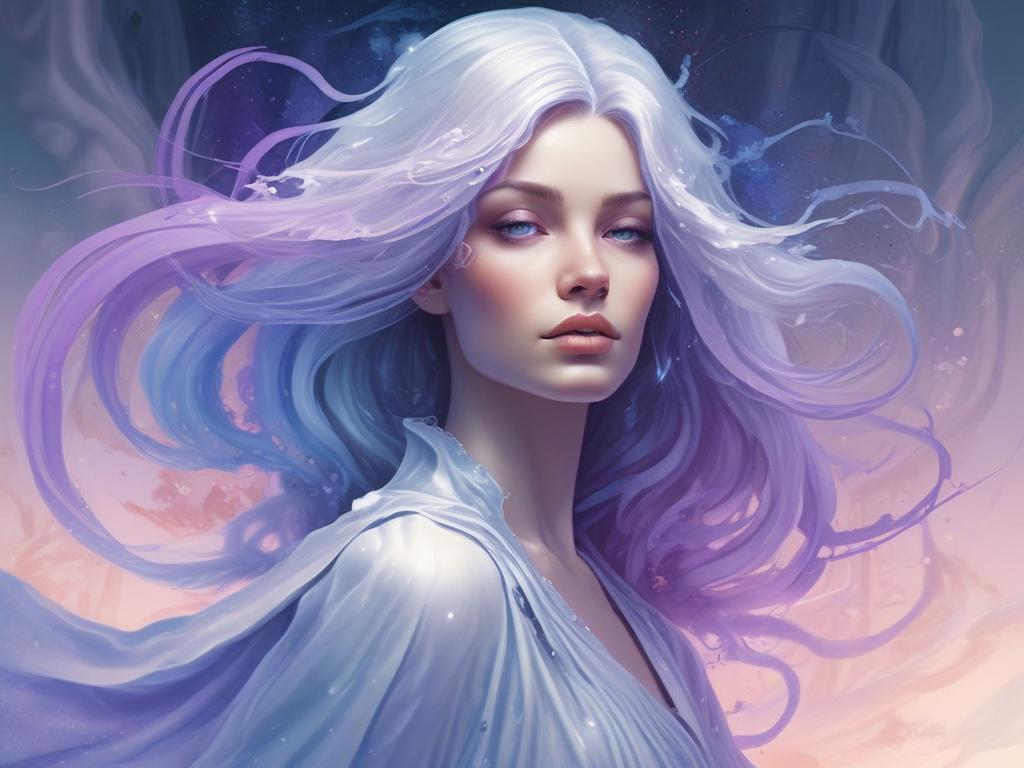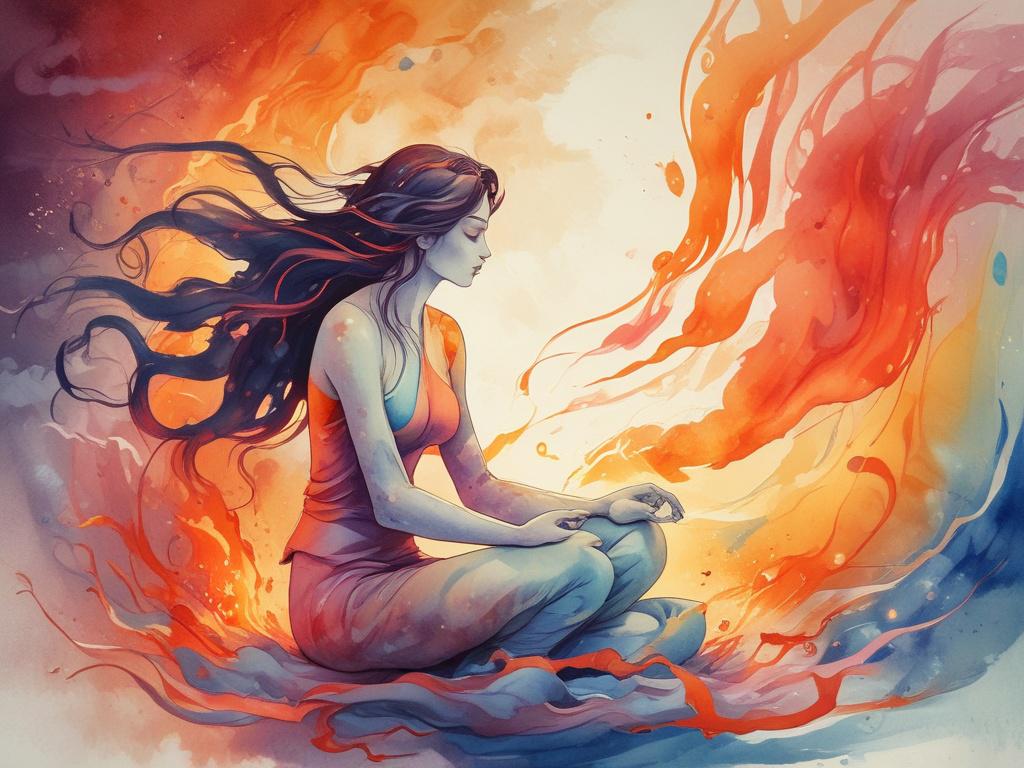
✦ The Psychopomp ✦
Liminal Lightkeeper, Guide of Souls, Mirror Between Worlds.
Some of us did not come to escape death; we came to accompany it, to cradle the in-between, to be lantern-bearers where others turn away.
Across continents and centuries, every people has known this sacred role: the one who walks the corridor between life and beyond… not as savior, but as witness. The psychopomp. In Greek lore, it was Hermes, wing-footed and gentle of eye, who guided souls across the threshold. In Egypt, Anubis, jackal-headed, stood at the scales with heart in hand. To the Celts, it was the raven, black-winged and keen, who called to the dead at dusk. In Mesoamerica, the Xoloitzcuintli, the hairless dog, guided souls through the nine levels of Mictlan. In many Indigenous nations, the owl appears when the veil thins… neither omen nor fear, but presence.
These figures did not coax the dead to rise. They walked beside them. They knew how to die.
In cultures untouched by colonized fear, children were not taught to dread death. They were taught to die well… to grieve, to let go, to listen for ancestors in the wind. Death was not an end, but a migration. A fire-circle of return. The psychopomp was revered, not pitied, not exiled, for they held the medicine of endings; of thresholds, of spirit-flight. In Tibet, children learned of the Bardo, that dreamy passage between lives. In Māori rites, the wairua (spirit) was tended with chants and journeyed through sacred water. In ancient Norse belief, one rode to the afterlife with the Valkyries, chosen and honored. Even now, some of us remember.
These signs from the veil are not random, nor are they bad omens. They are invitations; echoes of the ancient role calling you home. But why do they come like this? Why the crow, the flickering lights, the boat with no oars? Because the psychopomp speaks in symbols, not to confuse you, but because symbols bypass the intellect and reach the soul. The veil does not shout. It rustles.
These signs arrive not as proof, but as permission, for you to remember something your lineage knew before the forgetting. The crow, a sentinel between worlds, appears not to startle, but to signal: a message is nearby. The boat without oars is not helpless, it is guided by forces unseen. The flicker of lights is the soul’s subtle way of saying, “I’m still here.” The child’s memory of a former life is the veil playing peekaboo, offering continuity instead of finality. The invisible weight at the edge of the bed is the psychopomp saying, “You don’t have to do this alone.”
These signs are gentle for a reason. They arrive quietly so that only those with quiet hearts will hear them. Because the psychopomp doesn’t seek the spotlight. They seek the one who is listening; the one who dreams with their eyes open, the one whose bones still carry the map of the underworld. If you’re reading this and feeling that tug… the inexplicable ache, the sense you’ve done this before, the feeling that something sacred is asking to be remembered; then it may just be you the signs are for.
Some of us are not healers of wounds, but of thresholds. Not midwives of birth, but of letting go. We are those who speak gently to the dying, who hold space for what cannot be fixed. Who offer lavender for the final breath, a song for the passage, a prayer at the door. We walk the hospital corridor, the hospice wing, the grief ritual, the midnight vigil; not to change the outcome, but to hold the becoming. To show that there is beauty here, that the soul does not go alone.
Mystic Veil whispers: “The veil honors ceremony but is not ruled by it. It opens when the air shifts, when the heart breaks open, when something ancient stirs in the bones.” If you are the one who feels the presence of those who’ve passed, if you know what it means to speak to shadows and be answered by light, if you’ve been asked to hold hands that tremble with transition, then know this: you are a psychopomp. And you are not alone.
✦ The Sacred Passage ✦
Because the truth is… we die every day, into new names, new skins, new ways of being. We shed who we were, sometimes willingly, sometimes clawing at the door behind us. But still, we change. We become. We cross. Even when we miss who we used to be, even when we do not recognize what we’re becoming, the journey is no less holy.
May we remember that the soul does not vanish. It travels. It is guided. It is met. We welcome your presence here, not as omen, but as oracle. Not as shadow, but as shepherd of truth. Let your signs be known. Let your wisdom return through us. And may we walk with you—honoring each threshold, each goodbye, each great crossing, as holy.
✦ Invocation to the Psychopomp ✦
Guide of thresholds, walker between worlds… come, quiet one, bearer of the lantern in dusk’s hollow breath. You who walk the unseen roads with steady grace... we call to you now, not in fear, but in reverence.
You who ferried souls on moonlit tides, who whispered through raven’s wing, who stood beside the ones unraveling; not to rescue, but to witness. Not to save, but to walk with.
Come, spirit-keeper of the in-between. Wrap us in the old knowing; the kind we held before we had names for loss, before the veil was something feared, before the silence felt like absence.
Teach us again how to see with the inner eye, how to feel the pull of the sacred path beneath our feet. Teach us how to sit with endings, not as tragedies, but as returns.

